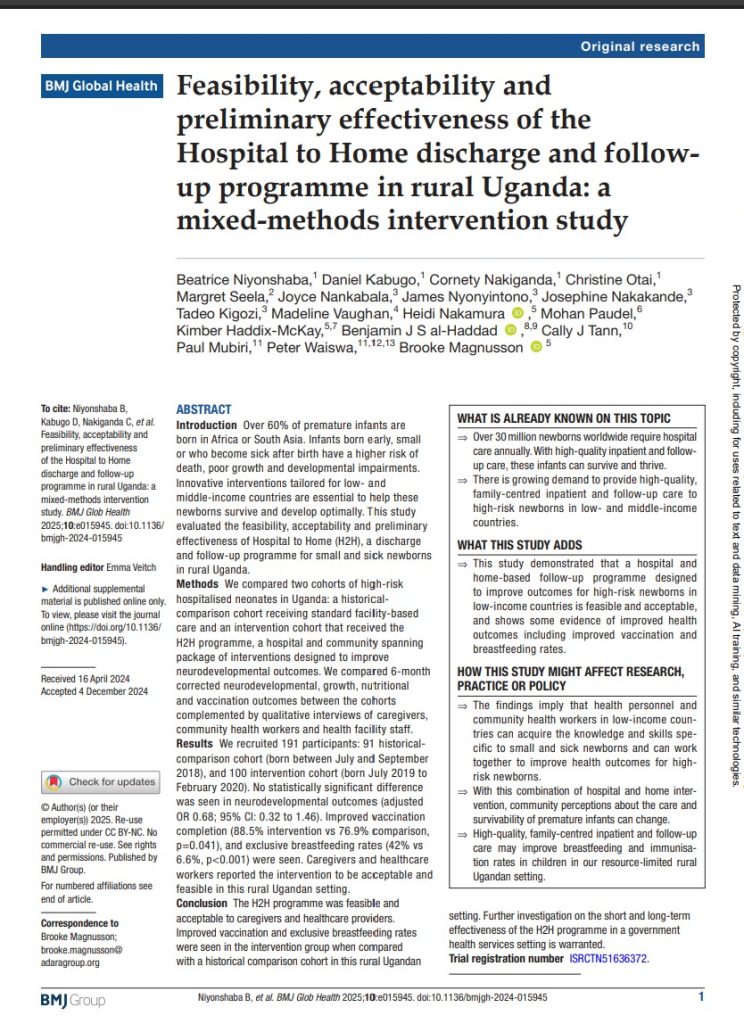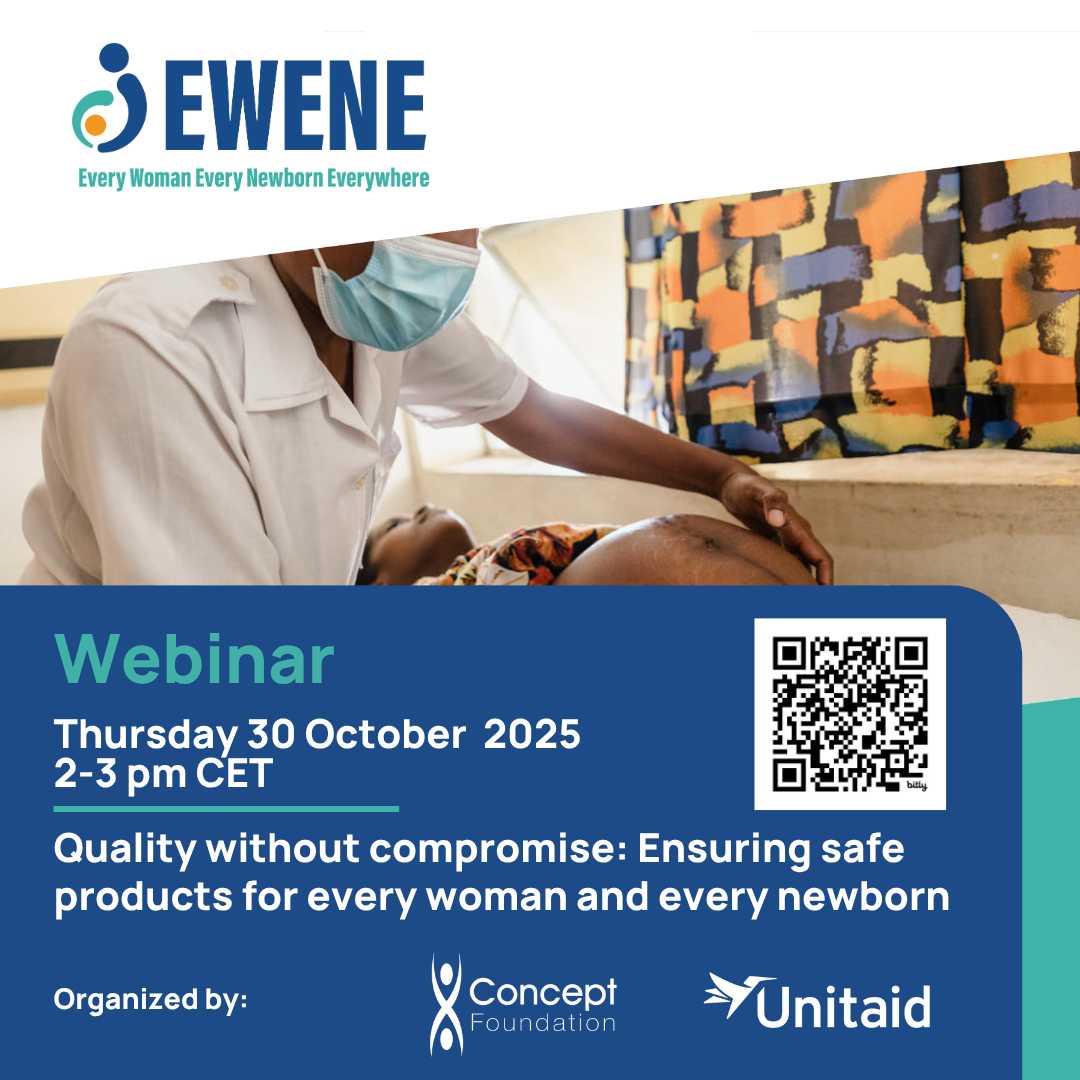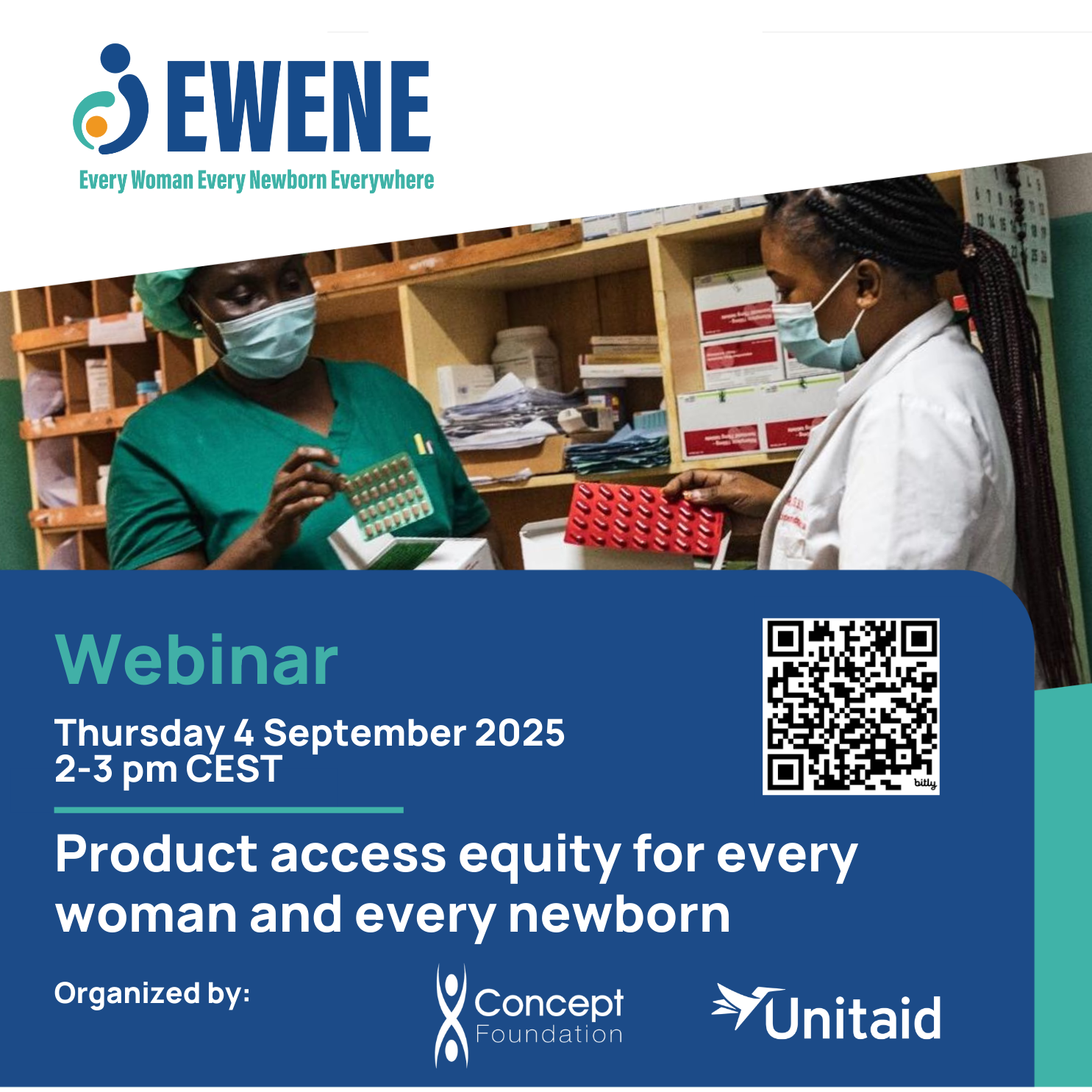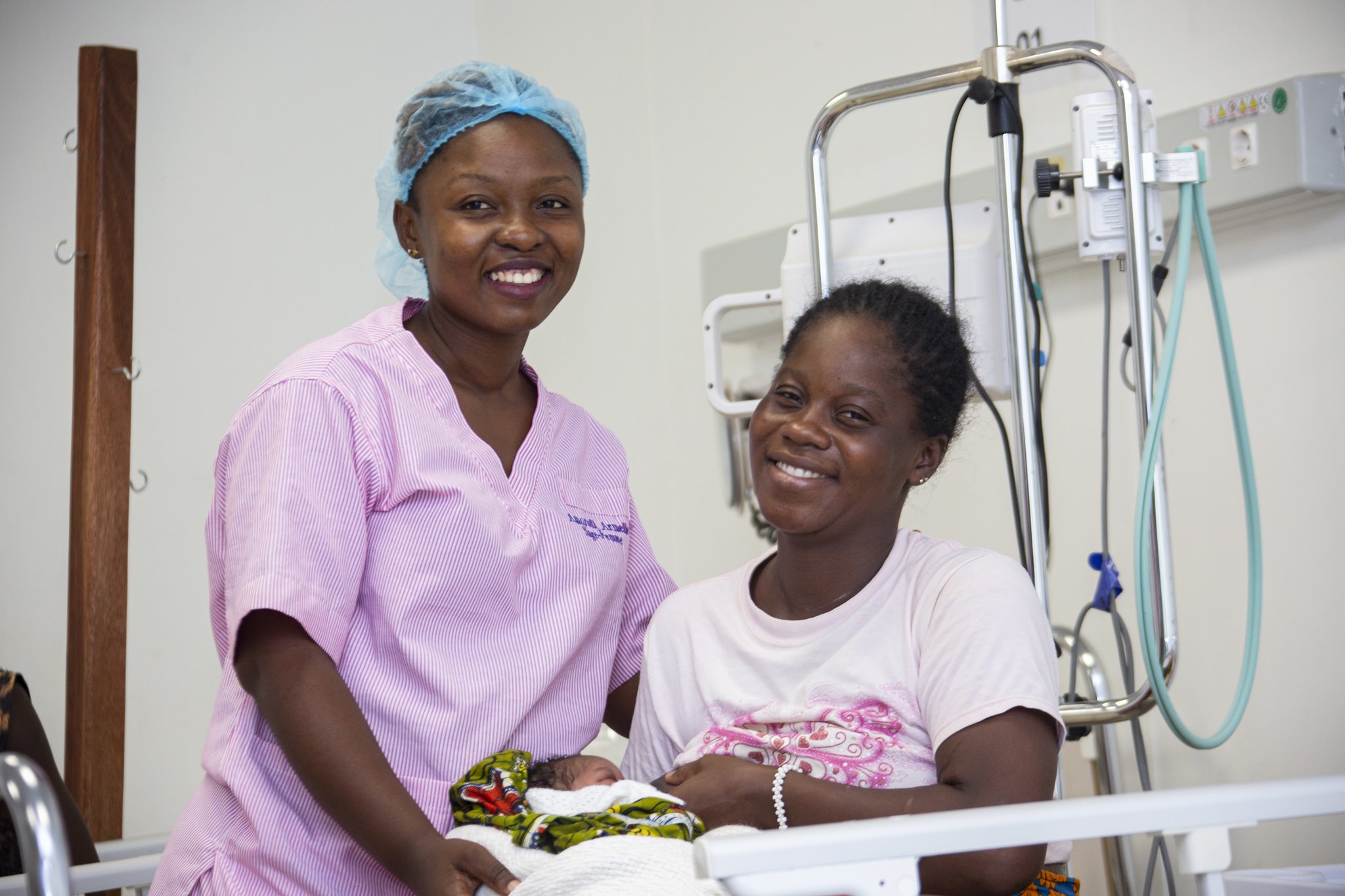Hospital to Home (H2H), a programme supporting high-risk infants and their mothers both in the hospital and when they return home has led to increased vaccination rates for infants (88.5% vs. 76.9%) and increased exclusive breastfeeding rates (42% vs 6.6%), according to a new study published in the BMJ Global Health.
H2H addresses a critical gap. Babies born small and sick have an increased risk of complications after discharge. While babies are still in hospital, H2H strengthens discharge processes, provides comprehensive parent education, strengthens lactation and breastfeeding practices, and promotes care that encourages healthy brain development.
It also provides regular at-home follow-up support to these infants for six months after discharge. Community health workers who are trained in the care of small and sick newborns are leading these home visits.
Hospital to Home is part of AdaraNewborn, a model of care pioneered at Kiwoko Hospital in Central Uganda. It is implemented by Adara in partnership with the Centre of Excellence, Kiwoko Hospital, in Uganda, who are currently working with the Ministry of Health to adapt it and roll it out in the public health system.
Watch more in this video, and read the study here.



